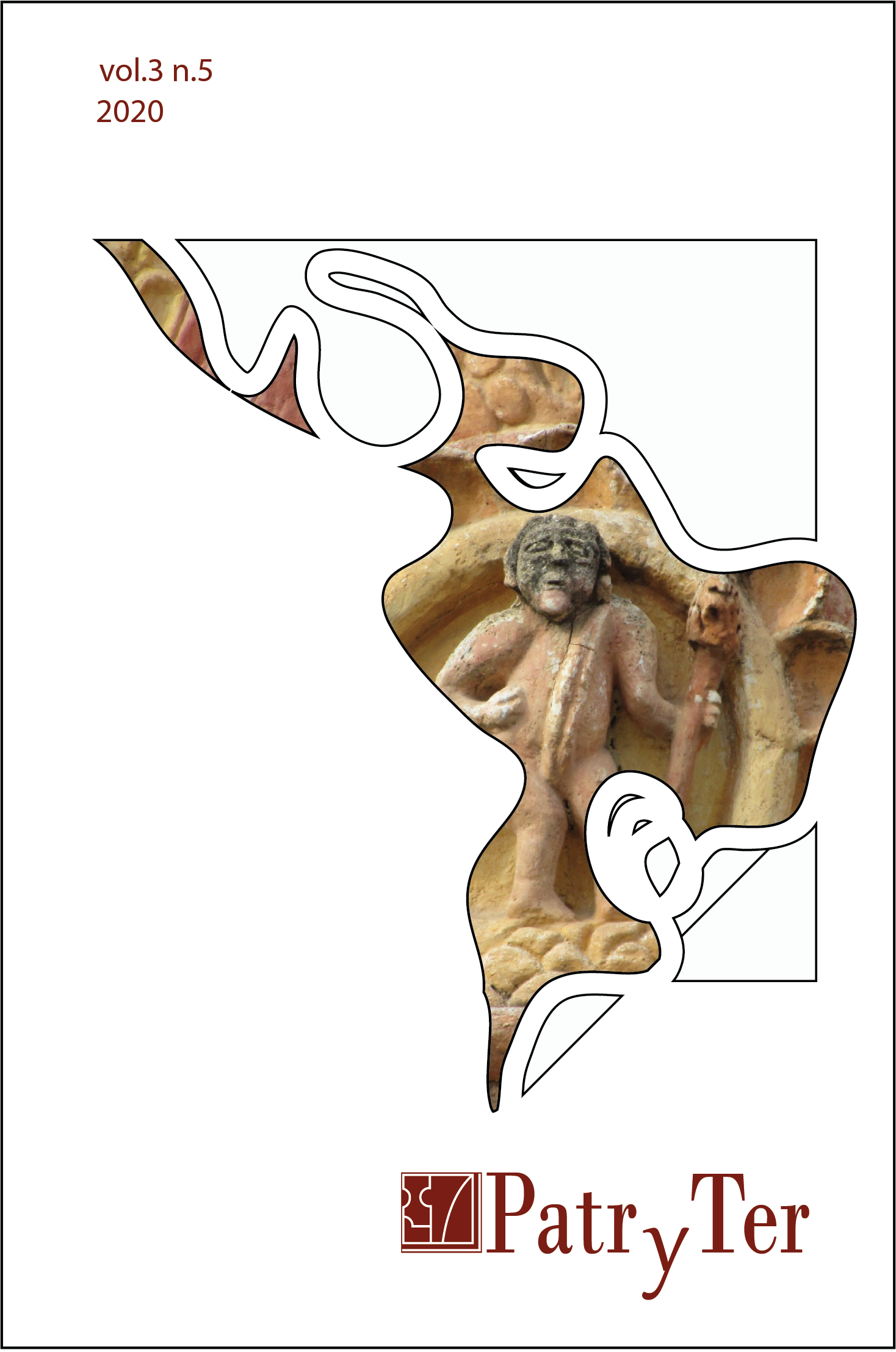Spatial existences and resistences in Latin America, the power of art, culture and folk
DOI:
https://doi.org/10.26512/patryter.v3i5.28985Keywords:
Latin America. Caribbean. PatryTer. Existence. Resistance. PeopleAbstract
Space, culture, art and crisis. These terms constitute some of the main elements that underpin spatial durations or lasting spatial situations in Latin America. This notion means resistance and social existence with a topical basis; that is, under the exogenous-endogenous colonialist and imperialist control of the territory on the continent, the subalternized groups (blacks, indigenous, mestizos) managed and manage to reproduce and perpetuate themselves in their own urban-rural sectors. These places carry contents that indicate said spatial duration, through their beliefs, sociability, parties, know-how, work, leisure, strategies of struggle and survival, etc.
Downloads
References
Alvarado, I., & Costa, E. (2019). Situación geográfica turística en la era urbana y devenir campo-ciudad en América Latina. Investigaciones Geográficas, 0(99). doi: http://dx.doi.org/10.14350/rig.59792
Alves, V. J. R. (2019). As rodas de samba do Distrito Federal brasileiro, patrimônio-territorial latinoamericano, expressão de resistência espacial negra. Tese de Doutorado em Geografia, Universidade de Brasília, Brasília, Distrito Federal, Brasil.
Boscariol, R. (2017). Mercado e moderna incorporação imobiliária no Oeste Paulista. Tese de Doutorado em Geografia, Universidade de Brasília, Brasília, Distrito Federal, Brasil.
Costa, E. 2016. Utopismos patrimoniais pela América Latina: resistências à colonialidade do poder. Actas XIV Coloquio Internacional de Geocrítica. 1-32. Barcelona, España. Disponible en: http://www.ub.edu/geocrit/xiv_everaldocosta.pdf
Costa, E. 2017. “Ativação popular do patrimônio-territorial na América Latina: teoria e metodologia”. Cuadernos de Geografía: Revista Colombiana de Geografía, 26 (2): 53-75. Disponible en: https://revistas.unal.edu.co/index.php/rcg/article/view/59225/pdf
Costa, E. 2018. “Riesgos y potenciales de preservación patrimonial en América Latina y el Caribe”. Investigaciones Geográficas, 96(2): 2-26. Disponible en: http://dx.doi.org/10.14350/rig.59593.
Costa, E., & Moncada, J. 2020. “Condicionamiento barroco del territorio y decolonialidad originaria”. Cuadernos de Geografía, Colombia, (en dictamen).
Gori, J. (2016). Cartografias valorativas de Sabará-MG: essencialidade da cidade patrimonial metropolizada. Tese de Doutorado em Geografia, Universidade de Brasília, Brasília, Distrito Federal, Brasil.
Holstensky, I. (2018). Patrimônio-territorial em Olinda-PE: comunidade quilombola Portão do Gelo - valorização da cultura afro-latino-americana. Dissertação de Mestrado em Geografia, Universidade de Brasília, Brasília, Distrito Federal, Brasil.
Lima, L. (2017). Lugar e Memória: o patrimônio goiano entre o "esquecimento" e a resistência. Tese de Doutorado em Geografia, Universidade de Brasília, Brasília, Distrito Federal, Brasil
Maluly, V. (2017). Geohistória e cartografias sobre os caminhos e os descaminhos de Goyaz (1725-1752). Dissertação de Mestrado em Geografia, Universidade de Brasília, Brasília, Distrito Federal, Brasil.
Mesquita, E. (2019). Patrimonio-territorial ante a patrimonializaçao global em Assunção, Paraguai. Dissertação de Mestrado em Geografia, Universidade de Brasília, Brasília, Distrito Federal, Brasil.
Oliveira, R. (2016). De Aldeamento Jesuítico à periferia metropolitana: Carapicuíba-SP como rugosidade patrimonial. Tese de Doutorado em Geografia, Universidade de Brasília, Brasília, Distrito Federal, Brasil.
Rúbio-Schrage, R. (2019). Espacialidade Mineratória na América Latina e o ser minerador em Potosí (Bolívia) e Mariana (Brasil). Tese de Doutorado em Geografia, Universidade de Brasília, Brasília, Distrito Federal, Brasil.
Downloads
Published
How to Cite
Issue
Section
License
Copyright (c) 2020 PatryTer

This work is licensed under a Creative Commons Attribution 4.0 International License.
Please be advised that Revista Patryter is licensed under a Creative Commons Attribution-NonCommercial-NoDerivatives 4.0 International License (CC BY 4.0) https://creativecommons.org/licenses/by/4.0/
Authors who publish in the PatryTer Magazine agree to the following terms:
- Authors retain the copyright and grant the journal the right of first publication, the work being simultaneously licensed under the Creative Commons Attribution License (CC BY) which allows the sharing of the work with recognition of the authorship of the work and initial publication in this journal.
- The contribution is original and unpublished and is not being evaluated for publication by another journal. When submitting the article, authors should attach as a supplementary document a Letter addressed to the PatryTer's Editor, indicating the academic merits of the submitted work (relevance, originality and origin of the article, that is, from what type of research]. This letter must be signed by all authors.
- Authors assign the copyright of the work that they present to the Editorial Board of PatryTer Magazine, which may serve the article in the PatryTer Magazine and in public and private databases in Brazil and abroad.
- Authors declare that they are fully responsible for the entire contents of the contribution that they submit to the Editorial Board of PatryTer Magazine.
- Authors declare that there is no conflict of interest that could interfere in the impartiality of the scientific papers submitted to the PatryTer Magazine Editorial Board.
- Authors are authorized to take additional contracts separately, for non-exclusive distribution of the version of the work published in this journal (eg publish in institutional repository or as a book chapter), with acknowledgment of authorship and initial publication in this journal.
Authors are allowed and encouraged to publish and distribute their work online (eg in institutional repositories or on their personal page) at any point before or during the editorial process, as this can generate productive changes as well as increase the impact and the citation of the published work (See The Effect of Free Access).




